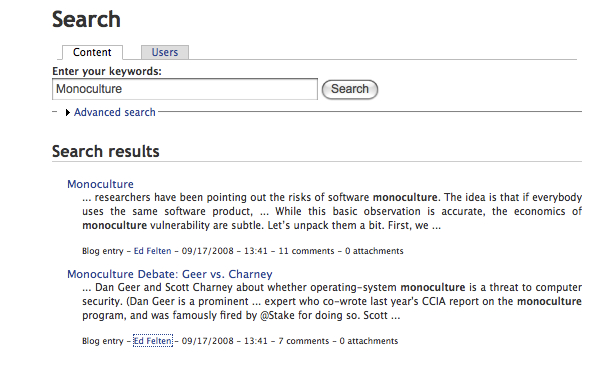Hmmm… There’s an interesting article in the WSJ which makes some intriguing but implausible claims:
In America today, there are almost as many people making their living as bloggers as there are lawyers. Already more Americans are making their primary income from posting their opinions than Americans working as computer programmers or firefighters.
Paid bloggers fit just about every definition of a microtrend: Their ranks have grown dramatically over the years, blogging is an important social and cultural movement that people care passionately about, and the number of people doing it for at least some income is approaching 1% of American adults.
The best studies we can find say we are a nation of over 20 million bloggers, with 1.7 million profiting from the work, and 452,000 of those using blogging as their primary source of income. That’s almost 2 million Americans getting paid by the word, the post, or the click — whether on their site or someone else’s. And that’s nearly half a million of whom it can be said, as Bob Dylan did of Hurricane Carter: “It’s my work he’d say, I do it for pay.”
I’m afraid I don’t believe the numbers in the article. The main problem, I think, is the inferences made about the number of bloggers who actually earn a living from their work. I’m sure that lots of them earn pin-money or better from Google AdSense etc. But if ‘earning a living’ means pulling in, say, $50k or more a year, then I haven’t seen many of them in my corner of the blogosphere. See here for another sceptical response which criticises, among other things, the WSJ’s credulity about Technorati surveys.
The WSJ (to its credit) later appended a note at the end of the piece, saying in part:
People have raised questions about the calculations on the numbers of bloggers for hire. First, I was surprised at how few studies there are on this and I believe there definitely should be more. So perhaps in the future I will do some original research, but for this piece we took the best we could find and referenced every number so people would know where they came from.
There is no question that the blogosphere, fast-growing as it is, has yet to nail down one way to measure itself or gauge its activity. But the most comprehensive sources we could find, conducted by reputable professionals, say there are over 22 million bloggers out there; and that 2% of bloggers are making their living blogging. Do the math, and you get roughly 450,000. It’s a fast-growing group and we ignore their needs, and influence, at our peril.
As far as the $75,000, the Technorati report says that of those bloggers who had 100,000 or more unique visitors, the average income is $75,000. True, it’s not the median, but it is the average. We can quibble about how easy it is to make this kind of money — but the point is, the huge potential is there.

